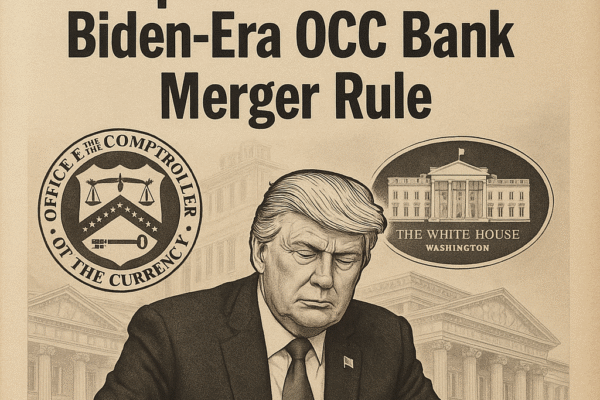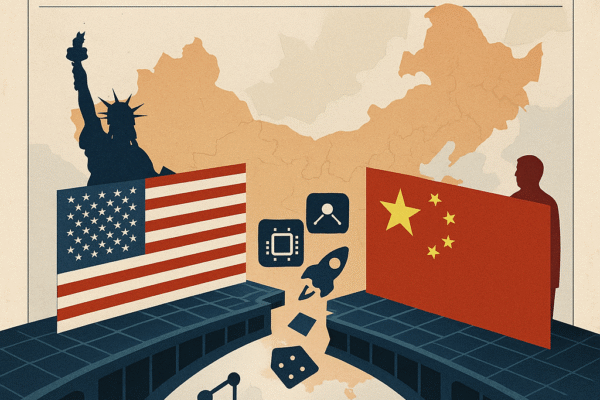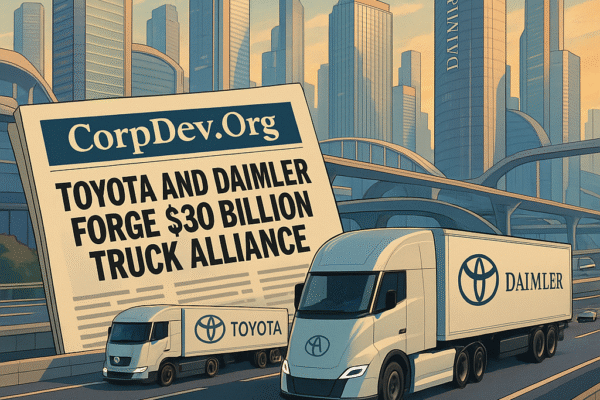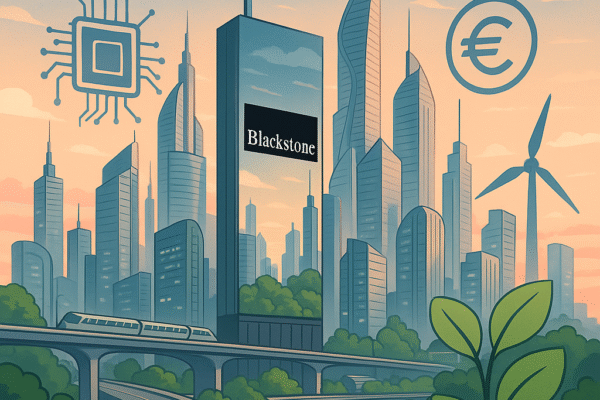Global private equity leaders suffered their worst trading day in five years Thursday as President Donald Trump’s sweeping “Liberation Day” tariffs ignited fears of supply chain chaos, portfolio company distress, and prolonged dealmaking paralysis. Apollo Global (NYSE: APO) and KKR (NYSE: KKR) shares plunged 12%, while Blackstone (NYSE: BX) fell nearly 10% – erasing $48 billion in combined market value[10][16]. The selloff reflects mounting investor concerns that 10% universal import taxes and targeted levies up to 46% will squeeze margins at portfolio companies, spike default risks, and freeze exit markets already reeling from 2024’s 44% deal slump[2][13].
Market Carnage and Sector Vulnerabilities
Immediate fallout:
- Ares Management (NYSE: ARES) and Blue Owl Capital (NYSE: OWL) dropped 15% – their largest single-day declines since IPOs[10]
- S&P 500 Private Equity Index fell 11.7%, underperforming broader market’s 9.2% slide[14][16]
- High-yield credit spreads widened 87bps to 592bps, threatening refinancing for $1.3 trillion in PE-backed leveraged loans[12][16]
Structural pressures:
| Sector | Tariff Exposure | PE NAV Contribution |
|---|---|---|
| Consumer Discretionary | High (45% imports) | 14.2% |
| Industrials | High (38% imports) | 8.7% |
| Technology | Moderate (22% imports) | 29.1% |
Source: Neuberger Berman analysis[7]
Portfolio Companies Face Perfect Storm
With 46% of PE-owned companies already held four+ years[2], firms confront:
- Supply chain recalibration: 68% of mid-market PE portfolio companies rely on Asian manufacturing hubs facing 32-54% tariffs[9][13]
- Margin compression: Analysts estimate 5-15% EBITDA declines across consumer, industrials and tech hardware holdings[9][15]
- Exit gridlock: Sponsor-to-sponsor deals plummeted 47% in 2024; corporate buyers retrenching[2][6]
Strategic Responses Taking Shape
Top firms are deploying crisis playbooks:
- Blackstone: Accelerating “nearshoring” investments in Mexican manufacturing ($4.2B YTD)[3][7]
- Apollo: Pivoting credit strategies toward inflation-resistant infrastructure ($6B Argo Partners stake)[6][7]
- KKR: Expanding balance sheet investments à la Berkshire Hathaway to bypass volatile debt markets[6][16]
Long-Term Outlook Hinges on Policy Durability
While PE’s $1.2T dry powder provides buffer[2], analysts see diverging paths:
- Base case (6-12 month tariffs): 15-20% NAV declines offset by opportunistic distress plays[7][16]
- Bear case (24+ month tariffs): 2008-style write-downs as 22% of portfolio companies face restructuring[12][14]
“This isn’t 2018’s trade skirmish – we’re seeing structural rewiring of global commerce,” warns Bain’s Rebecca Burack. “Firms that can’t rapidly localize supply chains and pivot to domestic demand drivers will face existential challenges.”[2][13]
As the industry digests Trump’s economic “declaration of independence,” one reality cuts through the chaos: The PE playbook that delivered 19% annualized returns since 2015 may require fundamental reinvention[3][16].
Sources: https://www.cbsnews.com/news/liberation-day-trump-tariffs-explained/





